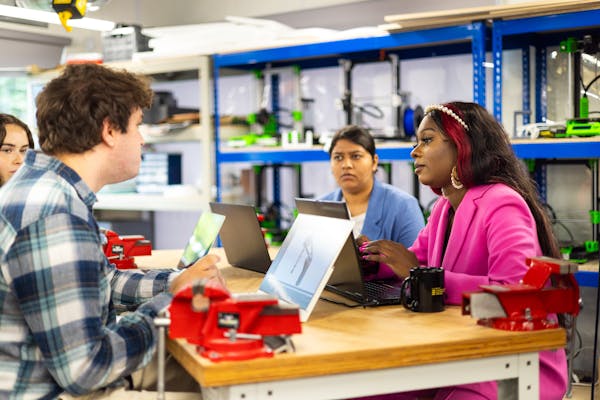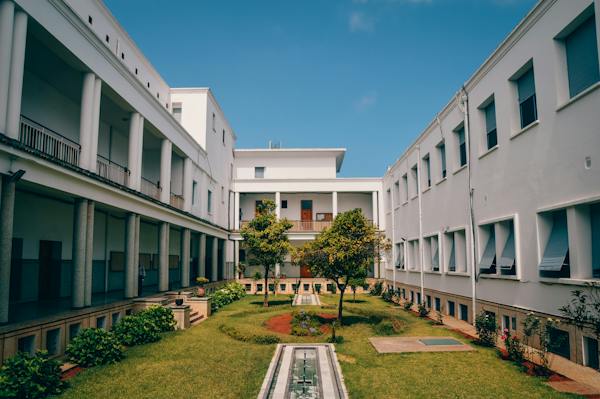How are University Studies Reliable in Africa?
Are University Studies Reliable in Africa?

How are university studies reliable, Though the quality of university education is still a major problem, higher education in Africa is crucial to the continent’s future. The quality and integrity of academic programs are impacted by a number of possibilities and difficulties that arise as educational systems throughout Africa continue to change.
This article examines the state of higher education in Africa, looking at everything from historical backgrounds to contemporary developments. It also examines the variables that affect the quality of education and the initiatives that are bringing about good change in the field. Through an analysis of case studies, technology developments, and emerging trends, we want to obtain a thorough comprehension of how higher education might become more trustworthy and significant in Africa.
Higher Education Landscape in Africa
In Africa, the higher education landscape is as diverse and dynamic as the continent itself. With a rich historical context and a variety of institutions, universities in Africa play a crucial role in shaping the future of the continent.
Historical Context of University Education in Africa, university education in Africa has a deep-rooted history, with some of the oldest universities dating back centuries. These institutions have evolved over time, reflecting the changing landscape of education in Africa.
Diversity of Higher Education Institutions in Africa
From traditional universities to technical and vocational institutions, Africa boasts a wide range of higher education institutions. This diversity caters to the varied educational needs and aspirations of students across the continent.
Challenges to Reliable University Studies in Africa
Despite the vibrancy of higher education in Africa, there are several challenges that impact the reliability of university studies on the continent. From quality assurance issues to resource constraints, these challenges need to be addressed to ensure the credibility of academic programs.
Quality Assurance Issues in African Universities
Maintaining consistent quality standards across African universities remains a challenge. Issues such as accreditation, curriculum relevance, and assessment practices need to be addressed to uphold the reliability of university studies in Africa.
Resource Constraints and Infrastructure Challenges, Limited resources and inadequate infrastructure pose significant challenges to the delivery of quality education in Africa. Addressing these constraints is crucial to ensuring that students have access to reliable and effective university studies.
Factors Influencing the Quality of University Education
Several factors play a key role in shaping the quality of university education in Africa. From curriculum design to faculty development, these factors are instrumental in enhancing the overall effectiveness and reliability of academic programs.
Curriculum Design and Pedagogical Approaches
Well-designed curricula and innovative pedagogical approaches are essential for ensuring the relevance and effectiveness of university education in Africa. Adapting to changing educational trends and needs is crucial for maintaining the quality of academic programs.

Faculty Development and Training
Investing in faculty development and training is vital for enhancing the quality of university education in Africa. Equipping educators with the necessary skills and knowledge ensures that students receive high-quality instruction and guidance. The high quality education that they get will lead to having experts in our country; more experts in the country will ensure development in the country.
Initiatives Promoting Academic Integrity in African Universities
Promoting academic integrity is essential for maintaining the credibility and reliability of university studies in Africa. Through ethical guidelines, codes of conduct, and plagiarism detection tools, initiatives are being implemented to uphold academic standards and promote integrity. The bottom line should be training students to the level where they acquire skills that will make them experts. More experts will facilitate development in the country.
Ethical Guidelines and Codes of Conduct
How are university studies reliable, Establishing ethical guidelines and codes of conduct helps to set clear expectations for academic behavior and integrity among students and faculty in African universities. These guidelines play a crucial role in upholding academic standards and fostering a culture of honesty and transparency.
Plagiarism Detection Tools and Strategies
Utilizing plagiarism detection tools and implementing strategies to prevent academic dishonesty are important steps in promoting academic integrity in African universities. By actively addressing issues of plagiarism, institutions can uphold the reliability of university studies and ensure the credibility of academic achievements.
Case Studies of Successful Educational Models in Africa
Exemplary Universities Driving Academic Excellence, in the diverse landscape of African higher education, certain universities stand out as beacons of academic excellence. Institutions like the University of Cape Town in South Africa, Makerere University in Uganda, and the University of Nairobi in Kenya have been instrumental in setting high standards for research, teaching, and innovation. These universities not only produce top-notch graduates but also contribute significantly to knowledge creation and societal development.
Collaborative Partnerships for Enhanced Learning Outcomes
Collaboration is key to the success of university studies in Africa. Many universities have formed partnerships with international institutions, industry players, and local communities to enrich the learning experience for students. Through collaborations, students gain access to cutting-edge research, internship opportunities, and real-world projects that enhance their skills and employability. By working together, universities can address the unique challenges facing higher education in Africa and create a more robust and relevant academic ecosystem.
The Role of Technology in Enhancing Reliability of University Studies
Integration of E-Learning Platforms and Virtual Classrooms, technology plays a crucial role in making university studies more reliable and accessible in Africa. With the integration of e-learning platforms and virtual classrooms, students can engage in flexible and interactive learning experiences without being bound by physical constraints. This not only expands access to education but also enables universities to reach a wider audience and cater to diverse learning styles.
Data Analytics for Monitoring and Evaluation of Academic Performance
Data analytics is revolutionizing the way universities monitor and evaluate academic performance. By leveraging data-driven insights, institutions can identify trends, track student progress, and design personalized interventions to support student success. This proactive approach not only improves academic outcomes but also enables universities to continuously enhance the quality and relevance of their programs.
Future Trends and Opportunities for Improving Higher Education in Africa
Innovations in Curriculum Development and Delivery, the future of higher education in Africa lies in innovations in curriculum development and delivery. By incorporating industry-relevant skills, interdisciplinary approaches, and experiential learning opportunities, universities can better prepare students for the demands of the modern workforce. Embracing innovative pedagogies and technologies will ensure that African universities remain at the forefront of knowledge creation and dissemination.
Global Partnerships and Knowledge Exchange Initiatives
Global partnerships and knowledge exchange initiatives offer exciting opportunities for African universities to enhance their academic offerings and research capabilities. By collaborating with renowned institutions and scholars from around the world, universities can access new perspectives, resources, and funding opportunities that drive innovation and excellence. These partnerships not only benefit students and faculty but also contribute to the global reputation and impact of African higher education.
Conclusion on How are university studies reliable
In conclusion, the journey towards reliable university studies in Africa is multifaceted and dynamic, shaped by a combination of challenges and advancements. By addressing issues of quality assurance, embracing innovative technologies, and fostering collaborations, African universities can strive towards greater reliability and excellence in education. As we look towards the future, opportunities abound for enhancing higher education in Africa, ultimately empowering the next generation of leaders and professionals on the continent.
Frequently Asked Questions (FAQ) on how are university studies reliable
1. What are some common challenges facing university studies in Africa?
2. How can technology be leveraged to improve the reliability of academic programs in African universities?
3. Are there specific initiatives or models that have successfully enhanced the quality of higher education in Africa?
4. What role do global partnerships play in advancing university studies and academic integrity in Africa?



